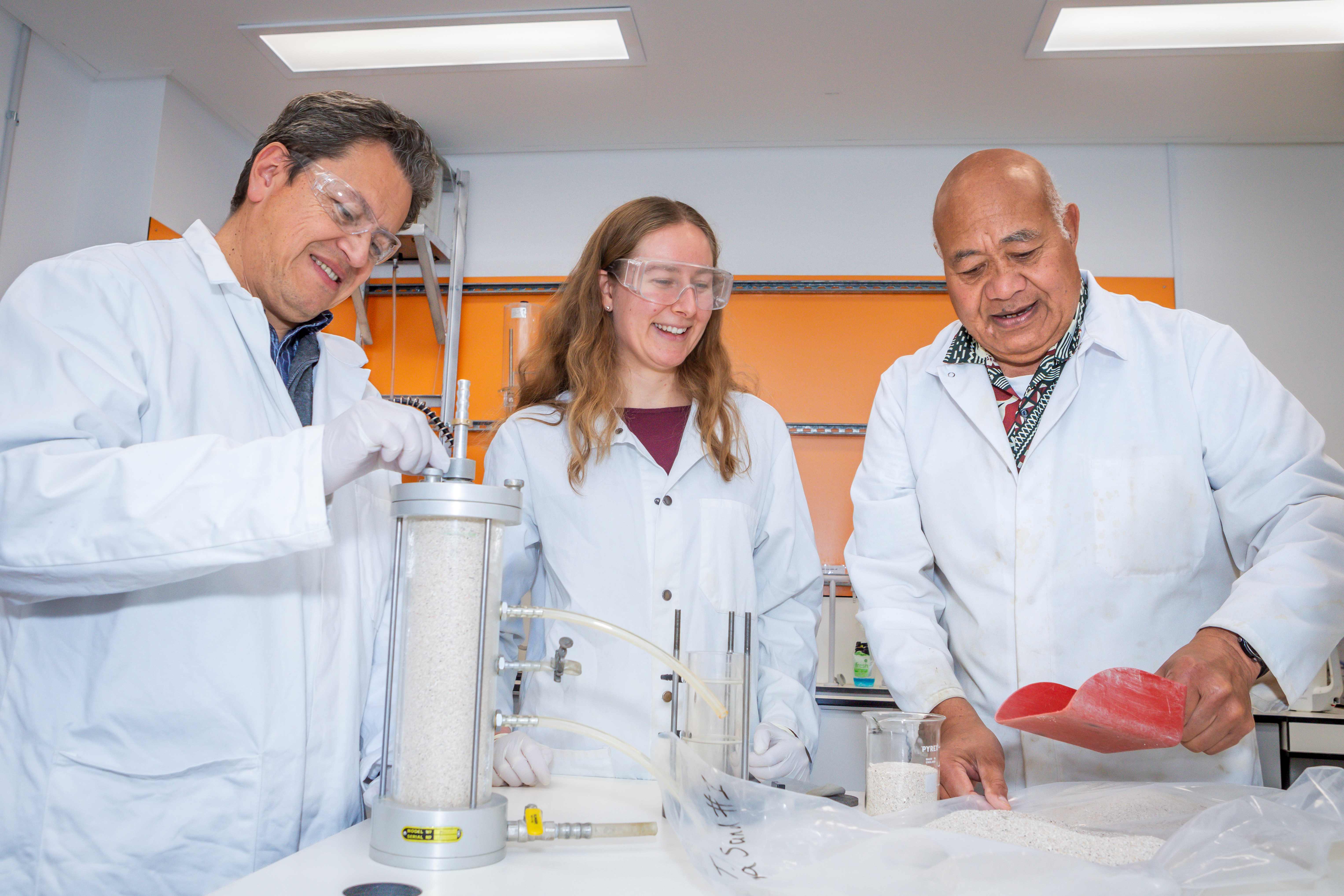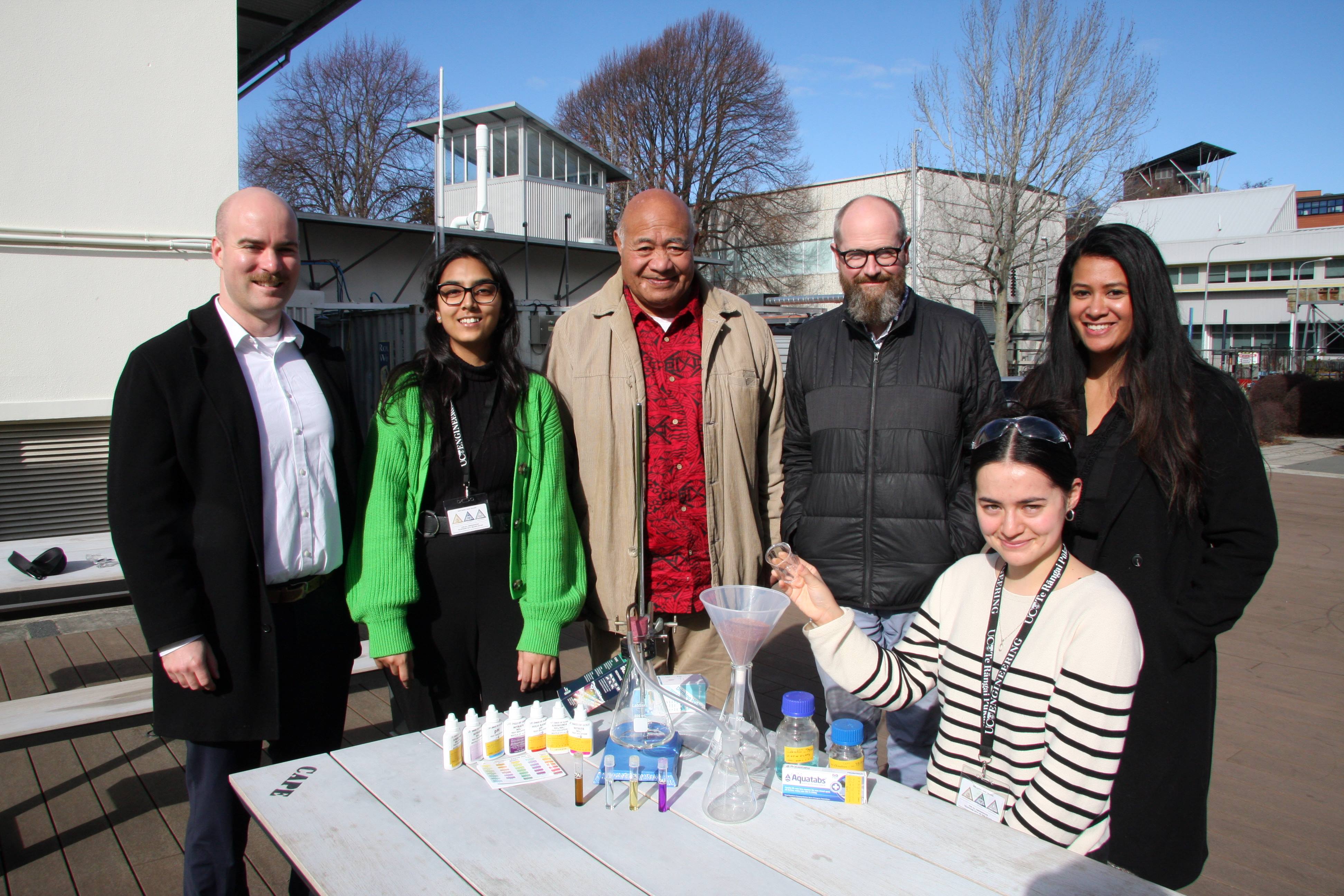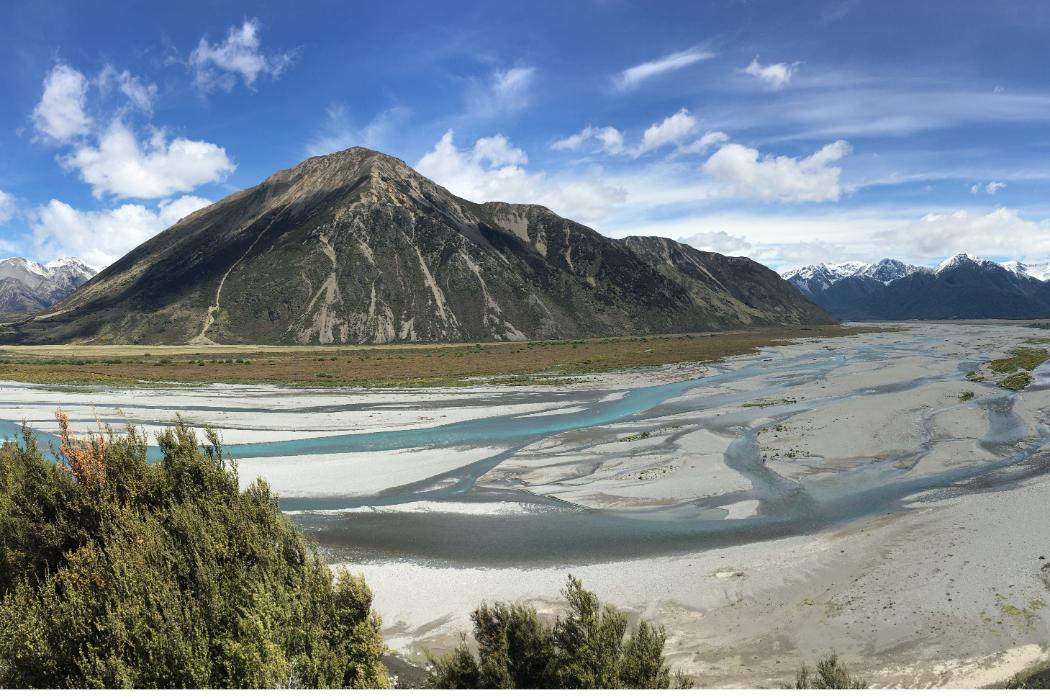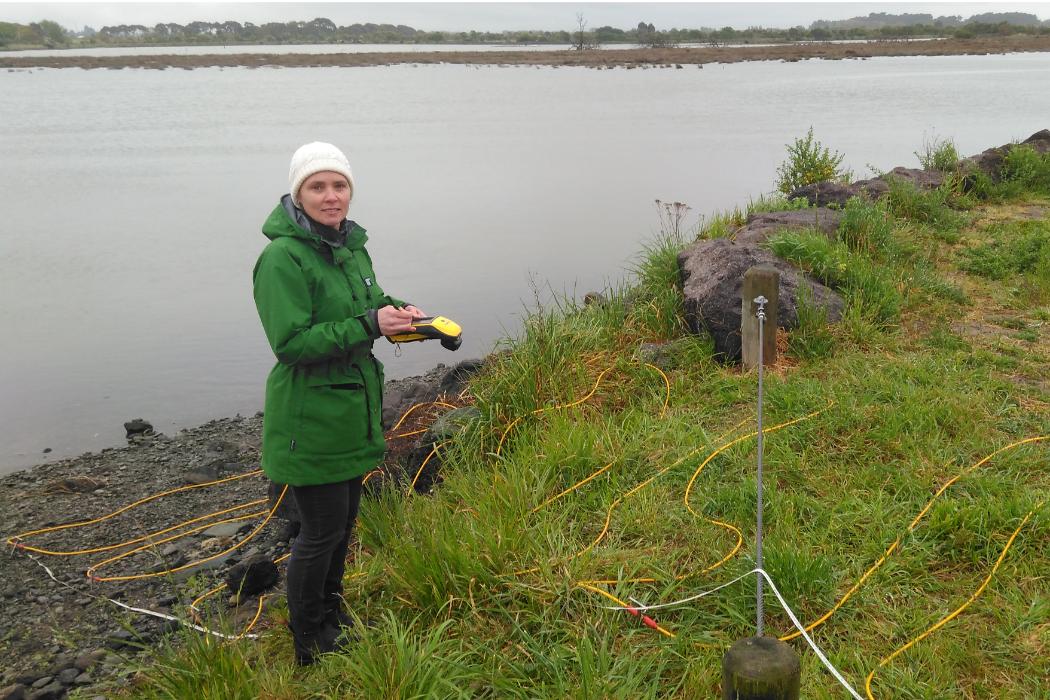Consumers perceptions on farming
Assurance systems such as freshwater monitoring are a cornerstone of New Zealand’s agribusiness. They enable compliance with regulations, product safety and international trade. But these systems face growing challenges. Urban communities demand higher transparency and engagement, consumers are increasingly sceptical of the effectiveness and compliance of farm operations. UC Professor Pavel Castka and Senior Research Fellow John Reid co-authored a white paper based on a recent survey, to address challenges and to improve farm assurance systems. The authors explored technological developments, public awareness and the potential to incorporate Māori perspectives. The survey was designed to gather public perceptions of farm assurance and identify ways to enhance public understanding of farming and its impacts. It suggests better farm monitoring systems could strengthen agriculture’s social license to operate. It also highlights the importance of transparency, accountability and engagement with interest groups and communities to foster trust and ensure compliance.
Improving Waterways Catchment Management
In 2021 we reported on our ongoing efforts aimed at improving UC waterways. Waiutuutu Okeover Stream runs through our Ilam campus. We commenced the Waiutuutu Okeover Digital Twin Project, which involves a virtual model of the stream and surrounding infrastructure such as bridges and the local environment, with real-time information about the functional condition of water quality data and water data. Phase 1 of the project involved a trial basic sensor station, and Phase 2 expands on the concept with multiple sensor stations in-stream for continuous monitoring for real-time data and analysis. Development of Phase 2 is now underway. Phase 2 will assist us with day-to-day operational decisions of the Waiutuutu Okeover Stream, and also long-term strategic planning, environment reporting, trend analysis and management scenario modelling.
Water Teaching and Monitoring
The streams flowing through our campus waterways provide us a range of teaching opportunities. For example, the macroinvertebrate and stream flow data collected by BIOL112 (Biology) and GEOG201 (Geography) provides a valuable addition to our usual monitoring. Our Waterways Plan aims to increase base flow, reduce contamination, and improve habitat for aquatic species. To assess these goals, water quality and quantity measurements are collected quarterly, and ecological monitoring is conducted annually. This is then compared to previous studies conducted on campus since 1979, to evaluate long-term change.
Bringing clean water to Tongan schools
Using technical skills and community engagement, a group of UC humanitarian engineering students worked alongside staff and students at schools in the Kingdom of Tonga to install drinking water treatment systems, which consist of membrane filters and a UV chamber to disinfect water for 2,500 students in three schools.
Banding together to boost study in waterways
UC and Lincoln University have signed an agreement to run postgraduate degree programmes in water science as jointly awarded courses – a first in Aotearoa New Zealand. The teaching and research partnership will be located in a new combined Waterways Centre on UC’s Ilam campus. Centre Director Professor James Brasington says the Centre is central to the freshwater sector, providing independent research, tertiary education and professional development in water science and management. “It is increasingly clear that we face a future characterised by periods with too little, then too much water, and water that is, far too often, too dirty to use safely or to support healthy ecosystems. Learning how to assess these risks, adapt and find new solutions that ensure sustainable and equitable access to water for both people and ecosystems couldn’t be a more urgent challenge. Our new programmes will provide graduates with the professional skills and theoretical understanding needed to drive transformative change,” says Professor Brasington.
About hydrological and ecological engineering
Our Hydrological and Ecological Engineering Group conducts research worldwide on diverse yet interrelated topics such as hydrology, water resources, erosion control, integrated catchment management, stormwater, irrigation, flood prediction, water quality, mine drainage, engineered treatment wetlands and biofuels. The Group use the Environmental and Fluids labs for research. The fluids lab has one of the largest hydraulic flumes in New Zealand, used for sediment transport studies and another flume for landslide and erosion studies. The environmental lab is also well equipped, including a particle size analyser, gas chromatograph, climate-controlled sub-rooms, automated logging capabilities, ion analyser and total organic carbon analyser. Other analytical equipment for field research includes a rainfall simulator, topographical laser scanner, weather station, automatic samplers, river surveyor and flow tracker and multiple portable instruments for measuring water quality and flow, including an inductively coupled plasma-mass spectrometry (ICP-MS) instrument, used for advanced analytical techniques for determining trace element concentrations in a range of water, sediment and biomass samples.
Water Resource Management Education
Managing the world’s precious water resources requires professionals to have multidisciplinary knowledge and an integrated approach. Water Resource Management students learn how to develop innovative and effective methods for the sustainable management of this critical resource in Aotearoa New Zealand and internationally. UC offers an extensive range of study options in water resource management, including:
- Advanced Water Resources
- Water Quality and Quantity Assessment
- Water Management, Policy and Planning
- Research and Communication Methods
- Master of Water Resource Management
- Water Resource Management PhD
- Applied Hydrogeology
Water Resource Management
Sustainability and management of our valuable water resources, both supply and quality, is one of the biggest challenges facing Aotearoa New Zealand today. Water Resource Management studies investigates sustainable techniques to protect our freshwater resources and prevent further stresses and hazards upon this vulnerable commodity. Our School of Earth and Environment offers an extensive range of study options related to water resource management. Study options include freshwater resources, and freshwater science field skills, advanced water resources, water quality and quantity assessment, and water management, policy and planning. Students can also learn to evaluate the effects of domestic and commercial use on our aquatic ecosystems through practical survey fieldwork.
Health Education for Goal 6
Global health challenges cross international borders and responses require international cooperation. Our Global Health course offers students the opportunity to explore key and emerging challenges and opportunities facing global health, major public health developments that have improved health outcomes for all, and how economic and political processes have shaped responses to global health problems. A major topic in classes explores key economic and environmental developments that have improved health outcomes including sanitation and the Sustainable Development Goals.
Seafood waste product could help our streams
Associate Professor Aisling O’Sullivan and Professor Tom Cochrane are researching the use of waste seashells as a solution to reduce contaminants, such as nitrate and phosphorus, from our streams. Greenlipped mussels are a huge industry in New Zealand, producing over 90,000 tonnes of shells every year. Using mussel shells as a solution would help to combat nitrate leaching and meet climate change targets and would also help to reduce waste going to landfill by converting it into a high value, reusable product. The technology would help enable farmers to meet new regulations by reducing the number of nitrates leaching from their land, while providing a natural lime fertiliser and soil enhancer from the waste seashells. Plans involve filters being reused at the end of their lifespan, as a ‘regenerated’ filter or being crushed to make an organic fertiliser that can be applied back on the farm.
Waterways Centre for Freshwater Management
The Waterways Centre, located at UC, is the first such centre to be established in any New Zealand university. Established in 2009, the Centre is a joint partnership between UC and Lincoln University. It is run by core staff and supported by a multi-disciplinary group of approximately 50 academic staff members with expertise in freshwater issues, drawn from both Universities. The Centre offers both undergraduate and postgraduate teaching programmes and qualifications, including research programmes. It also provides resources to learn more about freshwater systems and their response to change, and general information relevant to Canterbury’s water systems.
Student recognition in Youth Awards
The passion and hard work of UC student, Alyce Lysaght, was recognised by the community through the Canterbury Youth Awards. Alyce is a final-year Natural Resources Engineering student, minoring in Water and Environmental Engineering Systems. As well as producing her podcast series, she has been the Engineering representative for Te Akatoki, and was on the Infrastructure Commission Te Ao Māori testing panel, as well as mentoring Māori EngMe students at UC.
On-campus water restoration and conservation
Our Sustainability Office is an on-campus hub for students and staff and the wider community, interested in how they can create positive change and promote sustainable practices in their own lives and spaces. The water focused initiative run by the office informs our students and staff about water restoration and conservation. UC’s potable water is sourced from aquifers underneath the city which are fed by water from the Southern Alps. Staff and students can learn more about where our water comes from, how it is being used, how they can help conserve it, and learn about restoration work on the three waterways flowing through our own Ilam campus. There are also lots of helpful tips and free resources available, including a pocket map which shows the locations of the nearest drinking water fountains on campus to refill your bottle.
Reusing water on campus
In order to reduce the impact of UC’s water requirements, UC's building design code specifies the use of rainwater harvesting, where a minimum of 2 months average annual rainfall must be captured, stored and reticulated to provide a minimum 50% toilet water used. The design guidelines are applied to all new buildings, and examples have already been commissioned and are in use. We measure how much water is collected and used, in order to track and validate our water reduction strategy.







